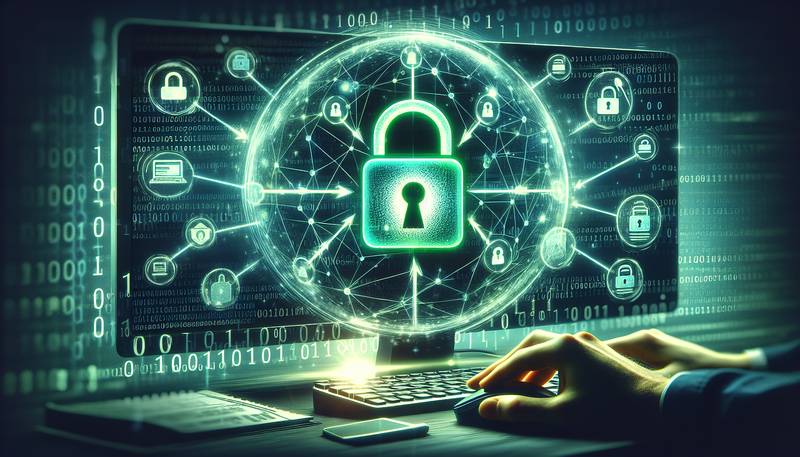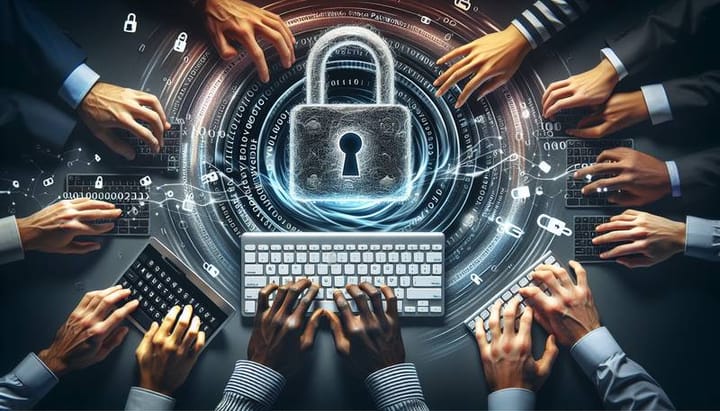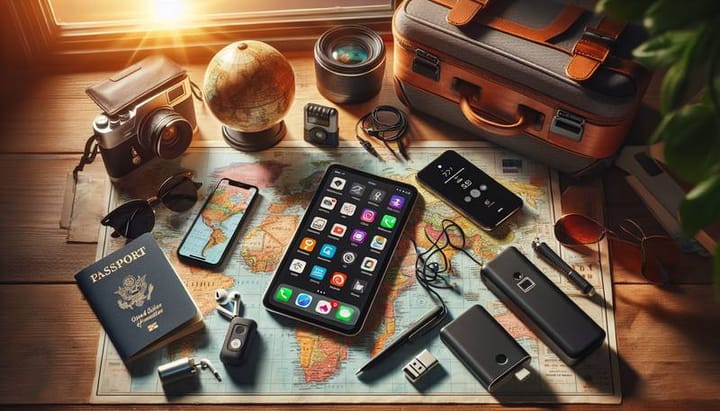Understanding VPNs: Why and How to Use Them

Introduction
Welcome to the intricate and thrilling universe of Virtual Private Networks (VPNs), the unsung heroes of online privacy and security. In an age where digital footprints can be traced, tracked, and targeted, safeguarding your personal data has never been more paramount. This comprehensive guide is designed to demystify VPNs, giving you the why's, the what's, and the how-to's. Whether you're a tech newbie or an experienced netizen, by the end of this guide, you'll understand the crucial role VPNs play in safeguarding your digital life. So buckle up, and let's embark on this enlightening journey into the world of VPNs, ensuring you stay covered in the vast digital landscape.
The Basics of VPNs
Before diving headfirst into the rabbit hole of VPN usage, it's pivotal to grasp the basic concept of what a VPN is and how it functions. Picture a VPN as a secure, encased tunnel through which your internet traffic travels, hidden from onlookers, and shielded from interference. When you use a VPN, your data is encrypted - converted into a code that only your intended destination can decipher. This process changes your IP address, which is the unique identifier that links you to your physical location, to that of the VPN server. It essentially cloaks your online movements, rendering you virtually untraceable. VPNs also navigate your data through their secure servers, which means any data breach on the public network does not put your personal information at risk. It's like sending a postcard in an envelope, rather than with just a stamp – it keeps nosy postmen at bay.
Why Use a VPN?
A VPN might seem like a digital luxury, but it's quickly becoming a necessity for the privacy-aware internet user. Why, you ask? Well, let's unpack some of the benefits. First, VPNs are vital for securing your data on unreliable public Wi-Fi networks. The free Wi-Fi at coffee shops or airports is a breeding ground for hackers looking to intercept your data. A VPN encrypts your data, making it useless gibberish to anyone trying to sneak a peek.Secondly, VPNs can help bypass geographical restrictions on websites and streaming platforms. Ever tried watching a show online, only to be greeted with "This content is not available in your country"? With a VPN, you can connect to a server in a supported country, thereby bypassing these annoying digital borders.Moreover, VPNs protect you from being tracked by advertisers, governments, and ISPs. Each digital action you take can be logged and used without your consent. A VPN shields your online activity, ensuring your digital rights to privacy and freedom. Lastly, in an increasingly remote work environment, VPNs are crucial for secure access to company networks. Working from home, you'll still need safe access to sensitive workplace data. A VPN ensures your connection to work servers is as protected as if you were in the office.
Choosing the Right VPN
Selecting the perfect VPN can feel like finding a needle in a haystack with countless options at your disposal. But fear not, for there are some key aspects to look for that will guide you to the right choice.First and foremost, consider privacy and security features. Look out for strong encryption protocols, a 'no-logs' policy (which means the VPN provider doesn’t store any record of your online activities), and a kill switch feature that cuts off your internet connection if the VPN drops. Next, evaluate the speed and reliability. A good VPN shouldn't significantly slow down your internet speed. Look for VPNs with a vast server network, as this often translates to better speed and service reliability. Additionally, examine the VPN's compatibility with your devices. Most VPNs support a wide range of devices, but it's always good to double-check whether your VPN of choice supports yours.Lastly, customer support and the pricing model are significant considerations. Responsive customer support can be a lifesaver when encountering technical difficulties. On pricing, weigh if the service you’re getting equates to the cost, explore the available subscription plans, and keep an eye out for free trials."
How to Set Up a VPN
Now that you understand why a VPN is essential and have picked the right one, let's jump into setting it up. Fret not, even if you're not tech-savvy, this process is straightforward and user-friendly. First up, you’ll need to sign up for an account with your chosen VPN provider. Once that's sorted, you’ll need to download and install their VPN software, also known as a VPN client. This is usually available on the provider's website or app store and should be clearly labeled.After installation, open the VPN client and sign in using the account credentials you created. You’ll typically be greeted with an interactive map or a list of servers. Now comes the fun part - choosing a server to connect to. If you're after privacy and security, connect to a server in your own country. If you're looking to bypass geo-restrictions, pick a server located in the country where the content is accessible.Once you select a server, hit the 'connect' button, and voilà – you're now browsing through a secure VPN tunnel! Most VPNs will indicate when you're connected, and even display your new IP address. For peace of mind, some VPN clients offer a feature to test if the VPN connection is working properly.Setting up a VPN on a smartphone or tablet isn’t much different. After downloading the app and signing in, you’d simply choose a server and hit 'connect'. Just remember to always disconnect from the VPN when you're done browsing, to avoid draining your device's battery unnecessarily.
Common VPN Myths Debunked
There is plenty of hearsay when it comes to VPNs, but not every whispered rumor rings true. Let's clear the digital fog and debunk some popular VPN myths.One common myth is that VPNs can dramatically slow down your internet speed. While it's true that the encryption process can cause minor lags, many premium VPNs have optimized their networks for speed, making the slow-down practically unnoticeable.Another myth is that VPNs are only for the tech-savvy. As detailed in the previous section, setting up and using a VPN is no more complicated than other typical apps you use every day. Additionally, some believe that VPNs make you completely anonymous. VPNs do a fantastic job of obscuring your online presence, but it's essential to remember that complete anonymity on the internet is virtually impossible. You should still practice safe browsing habits even when using a VPN.Lastly, there's a myth that all VPNs are the same. This couldn't be further from the truth. From security features and server location to speed and privacy policies, there's a vast spectrum of quality when it comes to VPN services.By addressing these misconceptions, you can choose and use a VPN with realistic expectations and a clearer understanding of their capabilities.
Maximizing Your VPN Experience
Having everything set up means you're ready to maximize your VPN experience. To fully leverage the benefits of a VPN, there are a few best practices you should adopt.Firstly, always keep your VPN software up to date. Updates often include essential security patches and new features that enhance your privacy and browsing experience.If you're using a VPN primarily for privacy, make it a habit to connect to the VPN every time you go online. This ensures that even your mundane digital activities are shielded.For those keen on accessing content from other regions, consider using servers that are closer to the source. This often provides a more reliable connection and better streaming quality.Lastly, regular use of the VPN may tempt you to relax your guard regarding other aspects of your digital security. However, complement your VPN with robust antivirus software and secure passwords – think of it as the digital equivalent of 'belt and suspenders'.Remember, while a VPN is a powerful tool, it doesn’t make you invincible – diligent cyber habits should always be at the core of your online activities.
Conclusion
Embarking on the journey to understand VPNs may have seemed like a daunting task, but look at you now – armed with the knowledge and tools to navigate the online world with increased security and privacy. You now understand not only the essence of VPNs – transforming your data into a coded enigma as it travels the cyber highways – but also how to choose one that suits your needs, set it up, and use it like a pro.Remember, entering the digital realm without the shield of a VPN is akin to leaving your house with the doors unlocked. As we continue to march further into the digital age, bolstering your online defense is not merely an option, but a necessity. So use this guide as your digital compass, and wield your VPN with confidence, knowing that you're taking crucial strides in protecting your digital footprint. Go forth into the digital landscape with your head held high and your data secured. Happy and safe browsing!


